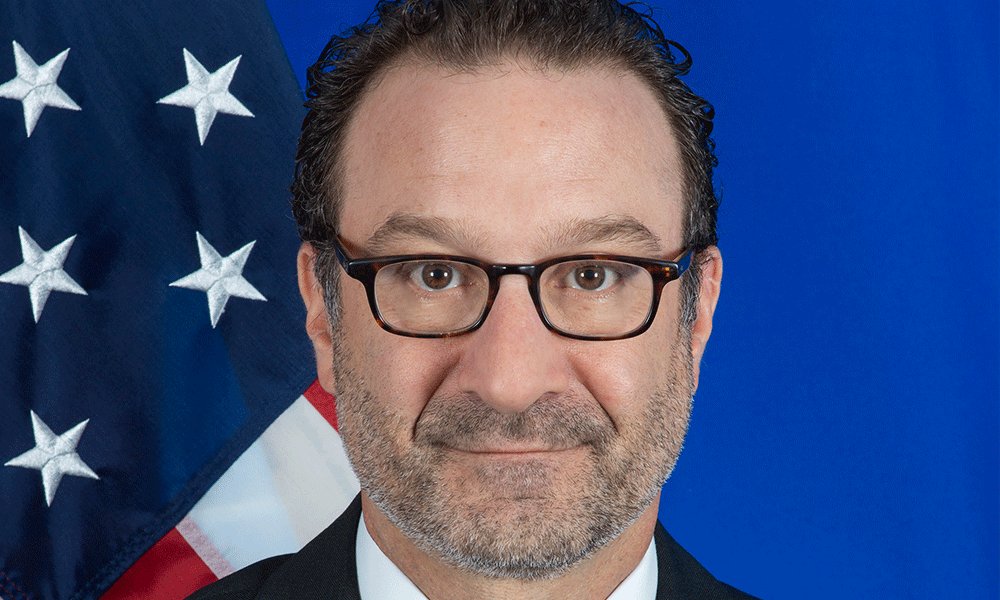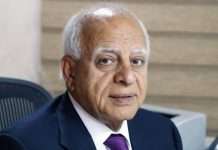Lebanon Headed Towards Promised Sovereignty
David Schenker/Asharq Al Awsat/January 08/2025
لبنان يسير نحو السيادة الموعودة
ديفيد شينكر- مساعد وزير الخارجية السابق لشؤون الشرق الادنى في ادارة ترمب
الشرق الأوسط/08 كانون الثاني/2025
لقد تحررت سوريا من نظام الأسد، كما أن الحملة العسكرية العنيفة التي شنتها إسرائيل ضد جماعة «حزب الله» حررت لبنان بشكل فعَّال أيضاً، ولكن على عكس دمشق، فإن بيروت لم تستوعب هذا التحرر بعد.
ومن المؤسف أنه إذا لم تغتنم النخبة السياسية في بيروت هذه اللحظة، فإن هذه الفرصة العابرة للبنان ليتحول إلى دولة ذات سيادة ومستقرة ستضيع، وسيكون الاختبار الأول الذي ستواجهه البلاد في التاسع من يناير (كانون الثاني) الحالي، عندما يجتمع نواب البرلمان اللبناني لانتخاب رئيس جديد للبلاد، وهو المنصب الشاغر منذ أكتوبر (تشرين الأول) 2022.
وعلى مدى السنوات الخمسين الماضية، كان لبنان نموذجاً للخلل الوظيفي، فمنذ عام 1975، عانت بيروت من حرب أهلية استمرت لمدة 15 عاماً أشعلها إرهابيون فلسطينيون، واحتلال عسكري وحشي من قبل نظام الأسد السوري، فضلاً عن التوغلات والغزوات المتكررة من قبل إسرائيل، كما أنه بعد انسحاب سوريا في عام 2005، عانى لبنان أيضاً لما يقرب من عقدين من الاحتلال الإيراني من خلال وكيل طهران هناك (حزب الله)، الذي كان يروع ويقتل معارضيه المحليين بشكل روتيني.
لكن العديد من مشاكل لبنان كانت ناتجة عن أفعاله الخاصة، إذ وصف برلمان الاتحاد الأوروبي الأزمة المالية المستمرة في بيروت بأنها «كارثة من صُنع الإنسان تسببت فيها مجموعة من الرجال في مختلف أنحاء الطبقة السياسية في البلاد».
وقد تجاهلت الحكومات اللبنانية المتعاقبة التخزين الإجرامي لنحو 3 آلاف طن من نترات الأمونيوم في مرفأ بيروت، وهو ما تسبب في الانفجار الهائل والمميت الذي شهدته البلاد في أغسطس (آب) 2020، وعندما انتهى الاحتلال السوري للبلاد، فإنه بدلاً من تعزيز هذا النصر، دخل العديد من السياسيين اللبنانيين الذين يُفترض أنهم موالون للغرب في تحالف انتخابي مع «حزب الله»، مما عزز الأخير على المستوى السياسي.
إن المشكلة الكبرى التي يواجهها لبنان اليوم تتمثل في القيادة، وذلك لأن معظم النخب السياسية في البلاد، المعروفة باسم «الزعماء»، تستفيد من الوضع الراهن ولا ترحب بالتغيير، فهم في الواقع معروفون بالفساد وضيق الأفق والطائفية.
وعلى الرغم من سجلهم المروّع في الحكم وتجاهلهم الدائم لرفاهية الشعب اللبناني، فقد أُتيحت لهؤلاء السياسيين فرصة العمر الآن لتغيير الوضع الراهن وإنهاء هيمنة «حزب الله»، وهذه الفرصة النادرة جاءت على أيدي إسرائيل.
ففي سبتمبر (أيلول) الماضي، وبعد عام من هجمات «حزب الله» بالصواريخ والطائرات من دون طيار، شنّت إسرائيل هجوماً مضاداً، وعلى مدى شهرين، تمكنت تل أبيب من تصفية قيادة الحزب ودمّرت مخزونه الاستراتيجي من الأسلحة والبنية التحتية العسكرية.
كما أدى سقوط نظام بشار الأسد في سوريا، في وقت سابق من شهر ديسمبر (كانون الأول)، إلى تعميق مدى تأثير العمليات الإسرائيلية في لبنان، إذ لم يعد «حزب الله»، الذي ذبح الآلاف من المدنيين أثناء الحرب الأهلية في خدمة الأسد، يستطيع الآن إعادة تسليح نفسه عبر الأراضي السورية.
وقد أعلن «حزب الله» انتصاره على إسرائيل، وهو أمر لم يكن مُرجحاً لكنه كان مُتوقَعاً، إلا أنه من الصعب تفسير التنازلات في اتفاق وقف إطلاق النار الذي تم بوساطة الولايات المتحدة في نوفمبر (تشرين الثاني) على أنها أي شيء آخر سوى استسلام غير مشروط، فـ«حزب الله» لم يكتفِ بالتوقيع على بنود قرار مجلس الأمن التابع للأمم المتحدة رقم 1701، الذي يقضي بإنهاء وجود الحزب في جنوب لبنان فحسب، بل وافق أيضاً على تنفيذ قرار مجلس الأمن رقم 1559، الذي ينص على نزع سلاح جميع الميليشيات في مختلف أنحاء لبنان، ورغم أن «حزب الله» لا ينوي بوضوح نزع سلاحه، فإن موافقته الظاهرة على مثل هذه الشروط غير المواتية تنم عن شعوره بالضعف.
ومن الناحية المثالية، فإن وقف إطلاق النار وتراجع مكانة «حزب الله» بإمكانهما تمكين بيروت أخيراً من ممارسة السيادة في الجنوب، ومن ثم في مختلف أنحاء الدولة، ولكن من المؤسف أنه ليس من الواضح ما إذا كان لبنان سيغتنم هذه الفرصة.
فصحيح أن الحكومة تقوم بنشر القوات المسلحة في الجنوب، ولكنها قد تحجم عن توجيه هذه القوات للعمل بشكل استباقي على تفكيك البنية التحتية العسكرية لـ«حزب الله» ومصادرة أسلحته، ومن الصعب تصور مرحلة ثانية من نزع السلاح في الشمال بما يتفق مع قرار مجلس الأمن رقم 1559.
فالقلق الذي يساور الساسة في لبنان الآن هو أن الدخول في مواجهة مع الميليشيات الشيعية قد يؤدي إلى إشعال فتيل الحرب الأهلية مرة أخرى، ولعل الأمر الأكثر أهمية هو خوفهم من أن يستعيد الحزب قوته على الرغم من سقوط الأسد.
فعلى الرغم من أن إسرائيل نجحت في إضعاف «حزب الله» إلى حد كبير، فإنه لا يزال هناك ما يقدر بنحو 15 ألف مقاتل من الحزب مُسلحين ببنادق كلاشينكوف من طراز «AK – 47» وقاذفات «آر بي جي»، وصواريخ «كورنيت» المضادة للدبابات في لبنان، كما أنه بالنظر إلى تاريخ «حزب الله» واسع نطاق و«الدنيء» من الاغتيالات، فإن التهديد لا يزال قائماً.
وعلى الرغم من جميع هذه التحديات، فإن الوقت الحالي يبدو مناسباً بشكل فريد للبنان، وفي الفترة المقبلة، سيكون من الضروري للغاية دعم الزعماء السياسيين في البلاد الذين كانوا يخشون المخاطرة حتى الآن، ففي الأيام المقبلة، سينتخب البرلمان رئيساً جديداً من قائمة متنوّعة من المرشحين، تتراوح بين أولئك الذين يدعمون الوضع الراهن و«حزب الله»، وغيرهم من المدافعين عن الإصلاح والتغيير.
ومن أجل تشجيع القيادة اللبنانية، إن لم يكن إجبارها على اغتنام الفرصة التي أتاحها إضعاف إسرائيل لـ«حزب الله»، فمن المرجح أن تضطر واشنطن إلى ربط مساعداتها الاقتصادية والعسكرية بأداء القوات المسلحة اللبنانية في إنفاذ قرارات الأمم المتحدة، كما أنه قد تكون هناك حاجة إلى فرض عقوبات على السياسيين اللبنانيين المتمردين أيضاً.
«ففي الرواية التوراتية لخروج بني إسرائيل، استغرق الأمر من موسى 40 عاماً ليقود الشعب اليهودي المُحرر من مصر إلى أرض كنعان، ووفقاً لما يُقال بشكل تقليدي، فإنهم احتاجوا هذا الوقت الطويل لقطع مسافة لا تتجاوز 170 ميلاً فقط لأن هؤلاء العبيد السابقين لم يكونوا مستعدين ليكونوا أمة ذات سيادة بعد أكثر من 400 عام من العبودية»، لكن من المؤسف أن لبنان ليس لديه نفس رفاهية الوقت، وفي غياب جهد فوري ومُنسَّق لاستغلال النكسات التي تعرض لها «حزب الله»، فإن الحزب سيعيد بناء نفسه، ولكن مع الدعم المستمر من جانب واشنطن، وبعض الساسة الشجعان في بيروت، فإن لبنان قد يمكنه أن يصل أخيراً إلى أرض السيادة الموعودة.
* مساعد وزير الخارجية السابق لشؤون الشرق الادنى في ادارة ترمب
Lebanon Headed Towards Promised Sovereignty
David Schenker/Asharq Al Awsat/January 08/2025
Syria has liberated itself from the Assad regime. Israel’s ferocious military campaign against Hezbollah has effectively liberated Lebanon, too. Unlike Syria, however, Lebanon hasn’t yet internalized its emancipation. Regrettably, if political elites in Beirut do not seize the moment, this fleeting opportunity for Lebanon to become a sovereign and stable state will pass. An early test will come on January 9, when Lebanese parliamentarians meet to elect a president, an office vacant since October 2022.
For the past fifty years, Lebanon has been a paradigm of dysfunction. Since 1975, Lebanon endured a 15-year civil war triggered by Palestinian terrorists, a brutal military occupation by Syria’s Assad regime, and repeated Israeli incursions and invasions. After Syria withdrew in 2005, Lebanon suffered nearly two decades of Iranian occupation via its proxy Hezbollah, which routinely intimidated and murdered its local opponents.
Many of Lebanon’s woes have been self-inflicted. The European Union parliament described Lebanon’s ongoing financial crisis as a “man-made disaster caused by a handful of men across the political class.” Successive Lebanese Governments ignored the criminal storage of some 3,000 tons of ammonium nitrate at Beirut Port that precipitated a massive and deadly August 2020 explosion. When the Syrian occupation ended, instead of consolidating the victory, several ostensibly pro-west Lebanese politicians entered into electoral coalition with Hezbollah, strengthening the organization politically.
Lebanon’s biggest problem is leadership. Most of the political elites in Lebanon—known as Zuama or “political bosses”—profit from the status quo and do not embrace change. Indeed, they are renowned for corruption, parochialism and sectarianism.
Despite their appalling record of governance and perennial disregard for the well-being of the Lebanese people, these politicians have been provided with a once in a lifetime chance to alter the status quo and end the tyranny of Hezbollah domination. This rare opportunity comes courtesy of Israel.
In September, after a year of unprovoked Hezbollah missile and drone attacks, Israel attacked back. Over the course of two months, Israel decapitated the organization’s leadership and degraded its strategic weapons stockpiles and military infrastructure. The fall of Syria’s Bashar al-Assad regime earlier this month amplified the impact of Israel’s operations. Hezbollah, which during the civil war slaughtered thousands of civilians in the service of Assad, cannot rearm via Syrian territory.
Improbably but predictably, Hezbollah has claimed victory over Israel. But it’s difficult to construe the concessions in the November US-brokered ceasefire agreement as anything other than unconditional surrender. Not only did Hezbollah sign off on the provisions of United Nations Security Council Resolution 1701, mandating the end of the group’s presence in South Lebanon, it agreed to the implementation of UNSCR 1559, the complete disarmament of all militias throughout Lebanon. While Hezbollah clearly has no intention to disarm, its feint assent to such unfavorable terms smacks of weakness.
Optimally, the ceasefire and Hezbollah’s diminished stature would empower Beirut finally to exert sovereignty in the south, and, eventually throughout the entire state. Regrettably, though, it’s not clear Beirut will capitalize. The Government is deploying the Lebanese Armed Forces (LAF) to the south, but could balk at directing these forces to proactively dismantle Hezbollah’s military infrastructure and confiscate its weapons. A second phase of disarmament in the north consistent with UNSCR 1559 is difficult to imagine.
The concern for Lebanon’s politicos is that confrontation with the Shiite militia will reignite civil war. Perhaps more salient are apprehensions that, notwithstanding the end of Assad, Hezbollah will reconstitute. Even though Israel substantially degraded Hezbollah, an estimated 15,000 Hezbollah is armed with AK-47s, RPGs, and Kornet anti-tank missiles remain in Lebanon. Given the organization’s sordid and extensive history of assassinations, the threat continues to resonate.
Despite the challenges, it is a uniquely propitious time for Lebanon. Going forward, support of the heretofore risk averse Zuama will be critical. In the coming days, Parliament will elect a new president from a diverse slate of candidates ranging from those consigned to the status quo and Hezbollah, and others advocating for reform and change. To encourage if not compel Lebanon’s leadership to embrace the opportunity afforded by Israel’s degradation of Hezbollah, Washington will likely have to condition economic and military assistance on LAF performance enforcing UN resolutions. Recalcitrant Lebanese politicians may likewise need to be sanctioned.
In the Biblical account of the Exodus, it took Moses 40 years to lead the liberated Jewish people from Egypt to Canaan. According to tradition, it took so long to travel a mere 170 miles because after more than 400 years of bondage, these former slaves were not prepared to be a sovereign nation. Lebanon, unfortunately, doesn’t have the same luxury of time. Absent an immediate and concerted effort to consolidate the setbacks to Hezbollah, the organization will rebuild. With the continued support of Washington–and some courageous politicians in Beirut—however, Lebanon could finally reach the Promised Land of sovereignty.
*Former assistant secretary of state for Near East affairs during the Trump administration






















